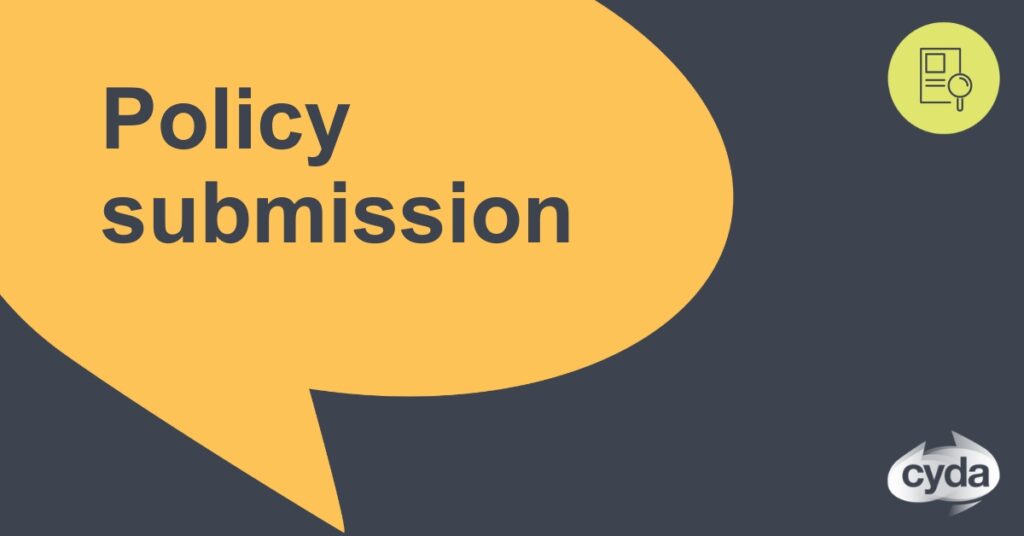CYDA has received extremely varied feedback regarding the experiences of children and families using the Early Childhood Early Intervention (ECEI) Pathway and accessing ECEI outside of this service stream.

CYDA has received extremely varied feedback regarding the experiences of children and families using the Early Childhood Early Intervention (ECEI) Pathway and accessing ECEI outside of this service stream.